Are EVs truly a cost-saving revolution? Or are they just fancy gadgets with a hidden price tag?
One Reddit user, armed with spreadsheets, has taken it upon himself to track the cost per mile of his Tesla Model 3 and Chevy Bolt against his trusty, old-school Toyota Corolla.
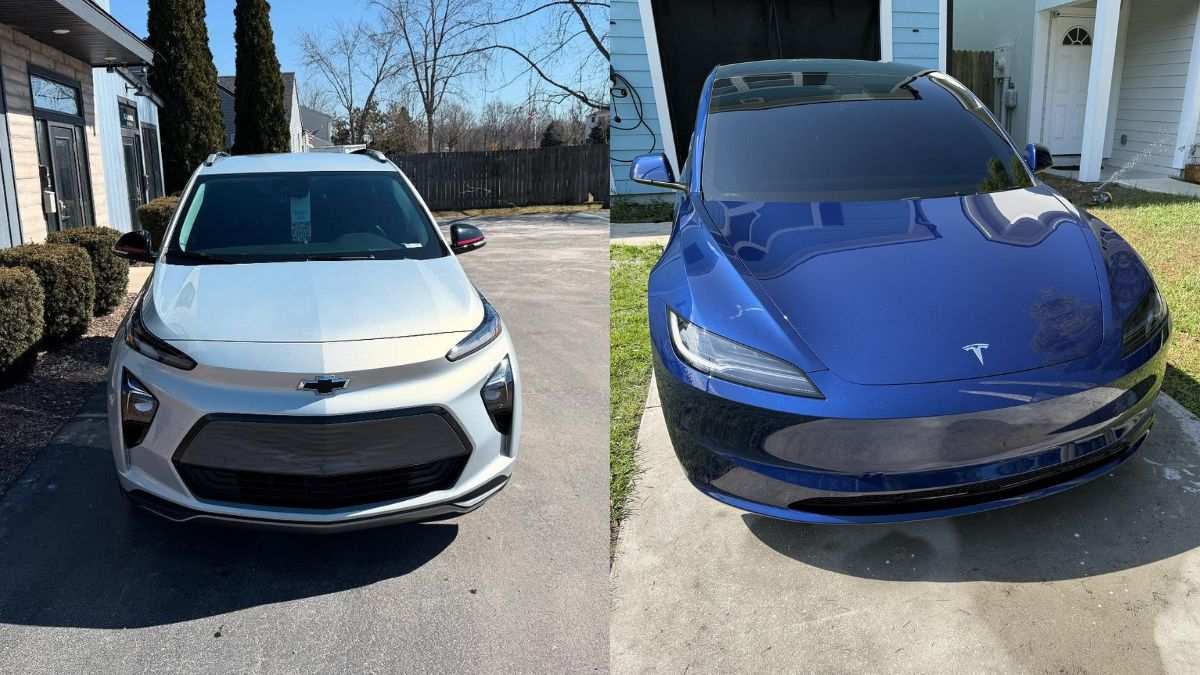
The results are surprisingly counterintuitive, shattering some common EV myths and revealing a few hard truths about the cost of owning an electric car.
50,000-Mile Cost Breakdown of Tesla Model 3 vs. Chevy Bolt vs. Toyota Corolla
Erv, shared some insights and data on r/electricvehicles after driving 50,000 miles across a Tesla Model 3 and Chevy Bolt EUV. The kicker? His old Toyota Corolla still beats them both in one crucial metric.
"I have a separate meter for my 2023 Tesla Model 3 RWD that I use to track energy use, efficiency, cost (and cost-savings), etc., and compare back to very detailed data I kept on my previous ICE car.
Given I've now driven >30,000 miles, it felt like a good time to share the data, and because I had it, I also shared comparisons to the Bolt EUV.
*I benchmarked the fuel costs against my prior car, a Toyota Corolla, which got 33.17 mpg over the 100,000+ miles I tracked it, and I also benchmarked against current gas prices, which in my area have been roughly $3/gallon, but I am using nuanced monthly averages for my state. I also bake in a $30 oil change per 5,000 miles as "fuel".
**I also calculated the portion of my savings that is due to taxes I'm not paying at the pump (0.285+0.184 per gallon) - which is relevant politically given we can expect a $250/year EV surcharge to attempt to "close that loophole", which for me, looks to be "fair" if it were state + federal, but just being federal and combined with my state's surcharge ($75), it is not.
I have insurance, tabs, depreciation, maintenance, as well but wanted to focus on "fuel". Those costs are all higher than the Corolla due to the Tesla (and Bolt) being much newer cars (and fully insured instead of minimally insured), and the heightened costs do offset the fuel savings for now. I'll be curious to see over 100,000+ miles how the total cost to own tightens up and I expect the Tesla to win out.
Currently, depreciation/any cost of the vehicle, the Tesla is already winning at 15c/mile vs. the Corolla's 16c/mile due to the cheaper maintenance and fuel despite the higher insurance and tabs. But taking into account depreciation changes, that comparison to $0.34 vs. $0.20 in favor of the Corolla, for now. Which is a price I'm comfortable paying for enhanced safety, comfort, etc.
EFFICIENCY
Because it's always interesting to discuss - this is my "efficiency" based on the electricity I am actually paying for, so it includes losses (and I am adding in charging away from home, but that's been extremely minimal). The Tesla itself reports a different number: 239 Mi/kWh (vs 296), which is partially due to losses and partially due to the car not reporting preconditioning. Similarly, the Tesla app says 8,771 kWh charged vs. I have logged 9,028 (a 3% variance), which tells me the 20% variance on Mi/kWh is primarily preconditioning and not charging losses, which is surprising given I do not precondition very frequently and I do not use Sentry. I charge L2."
Tesla Model 3 vs. Chevy Bolt EUV: Performance, Range, and Space Comparison
- The Tesla Model 3 offers a dual-motor all-wheel-drive system producing 460 horsepower, achieving 0–60 mph in 2.9 seconds, with an EPA-estimated range of up to 342 miles. In contrast, the Chevrolet Bolt EUV features a single front-mounted motor delivering 200 horsepower, reaching 0–60 mph in approximately 7 seconds, and provides an EPA-estimated range of 247 miles.
- The Model 3, a compact sedan, offers 97 cubic feet of passenger volume and 24 cubic feet of cargo space. The Bolt EUV, a subcompact crossover, provides similar passenger volume at 97 cubic feet but offers slightly less cargo space at 16.3 cubic feet.
- Tesla's Model 3 includes a minimalist interior with a 15-inch touchscreen interface, advanced driver-assistance features, and access to Tesla's Supercharger network. The Bolt EUV comes equipped with Chevrolet's infotainment system, supports Apple CarPlay and Android Auto, and offers GM's Super Cruise hands-free driving technology on compatible roads.
- The 2025 Tesla Model 3 starts at approximately $42,490, positioning it in the premium EV segment. The Chevrolet Bolt EUV offered a more affordable entry point, with prices starting around $27,800, making it one of the most budget-friendly electric vehicles available at the time of its release.
Erv, in the kind of methodical tone that could make an actuary swoon, detailed everything: kilowatt-hours, miles per gallon equivalent (MPGe), oil changes priced to the penny, and even the political nuances of gas taxes and EV surcharges.
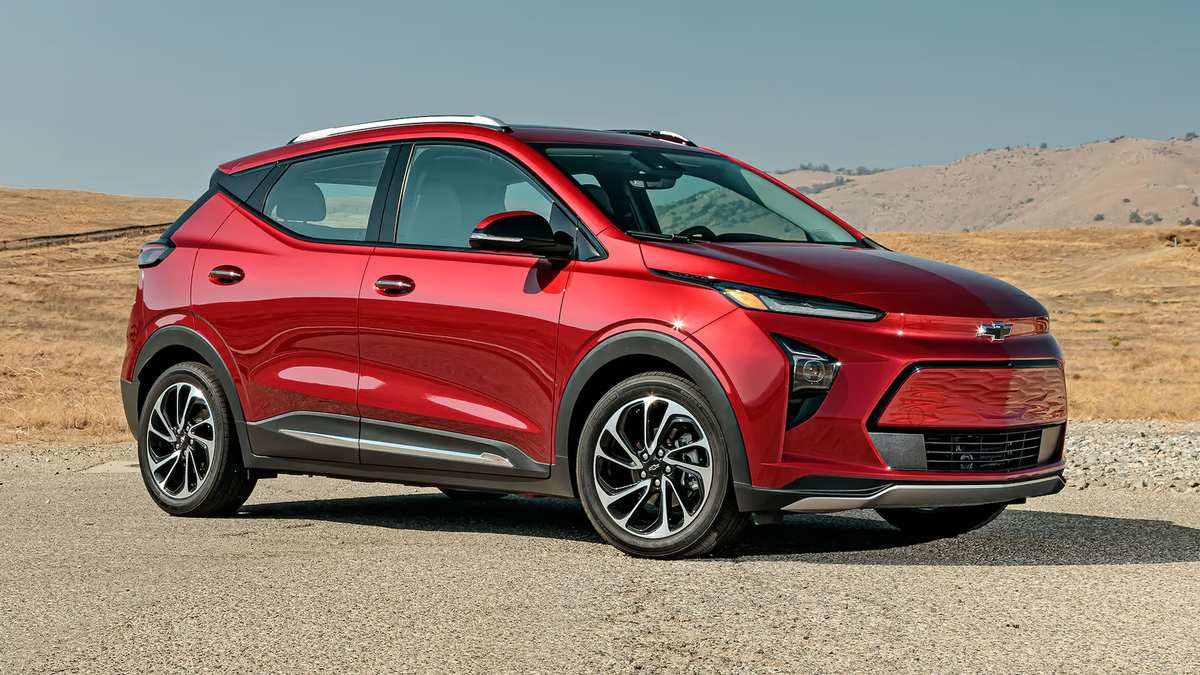
According to his logs, the Model 3 RWD clocked in at 15 cents per mile in fuel and maintenance. The Bolt? Slightly worse. But even those figures paled next to his dearly departed Corolla, which, once depreciation was factored in, ran just 20 cents per mile overall. The Tesla ballooned to 34 cents. That’s not a minor difference.
Depreciation and Maintenance, How Reddit Users React to True EV Ownership Costs
The Reddit horde, predictably, pounced. One commenter, Hsaphoto, praised the inclusion of depreciation: the forgotten financial bogeyman. Another, neutralpoliticsbot, scoffed at the $30 oil change estimate with a sarcastic “$30 oil change where?”, the internet equivalent of flipping a table.
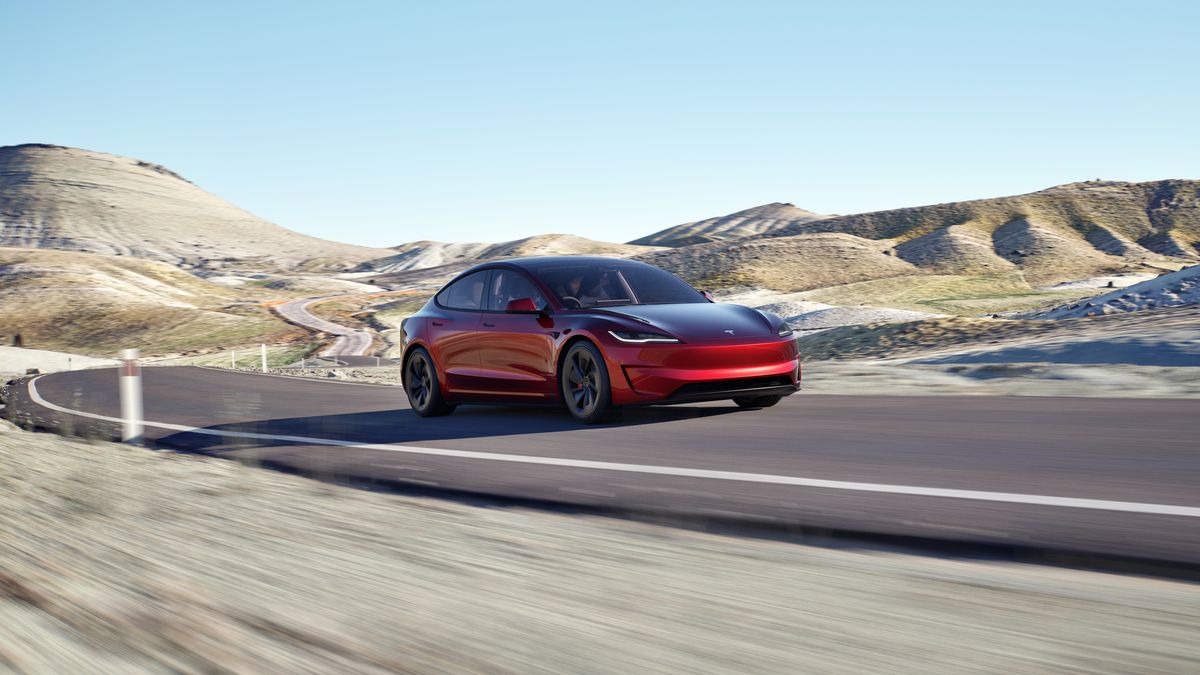
Erv held the line, citing years of discount coupons and standard oil. Welcome to Reddit, where every car becomes a case study and every assumption gets litigated like a class-action suit.
Beyond the Spreadsheet, User-Reported Efficiency and Cost Highlights from Bolt and Hybrid Owners
One Bolt owner, Low_Thanks_1540, bragged about getting 5.1 mi/kWh in Detroit, averaging just 3 cents per mile. Another user brought their Ford Maverick hybrid into the ring, reporting a paltry $0.129 per mile in operating costs. Suddenly, the Model 3's efficiency crown didn’t feel quite so regal.
The Tesla still wins where it matters to many, comfort, safety, and long-term efficiency. It delivered 114 MPGe versus the Bolt’s 103, despite colder temps and nearly 11,000 more miles logged. And with LFP batteries under the floorboards and a 239 mi/kWh efficiency reported by the car itself (after adjusting for preconditioning losses), the Model 3 proved not only cost-effective but technologically superior. As one user noted, “It’s well documented that the Tesla Model 3 RWD is more efficient than a Bolt with all things being equal.” The key phrase is that all things being equal, which in the real world, they rarely are.
MPGe Demystified, How EPA’s Miles-Per-Gallon-Equivalent Rating Works for EV Buyers
- MPGe is determined by equating the energy content of electricity to that of gasoline. Specifically, 33.7 kilowatt-hours (kWh) of electricity is considered equivalent to one gallon of gasoline. To calculate MPGe, the distance an electric vehicle can travel on 33.7 kWh is measured, allowing for a comparison with traditional miles-per-gallon (MPG) ratings of gasoline vehicles.
- MPGe was introduced to provide consumers with a familiar metric to compare the energy efficiency of electric vehicles (EVs) to that of internal combustion engine vehicles. By translating electric energy consumption into a gasoline-equivalent format, it aims to simplify the decision-making process for potential EV buyers.
- While MPGe offers a standardized measure, it doesn't account for various real-world factors such as driving habits, terrain, climate conditions, and accessory usage (like air conditioning), all of which can significantly impact an EV's actual efficiency. Consequently, two vehicles with similar MPGe ratings might perform differently under everyday driving conditions.
- MPGe focuses solely on the energy consumed by the vehicle during operation, neglecting the efficiency and environmental impact of electricity generation and transmission. For instance, electricity produced from renewable sources has a different environmental footprint compared to that generated from fossil fuels, but MPGe does not differentiate between them.
Still, the most revealing part of this Reddit saga was the emotional math. Erv knows his Tesla costs more. He admits it. But he’s comfortable paying that premium for the intangible upgrades, refined ride, cleaner footprint, and the sense that he’s driving the future. That, right there, is the fine print most car reviews miss. We’re not always chasing the cheapest ride. Sometimes, we’re chasing the one that feels right. Even if it costs 14 cents more per mile.
Shifts in Car Ownership
So what does this all mean? It means the automotive world is no longer defined solely by horsepower and leather trim. It’s defined by kilowatt-hours, tax credits, and Reddit threads that dissect your every mile like a neurosurgeon studying a brain scan.
The EV revolution forces you to confront what you value, numbers or nuance, cost or conscience. And if you’re still wondering whether to switch, don’t just take it from the marketing brochures. Sit down with the math geniuses in the back booth of Reddit and let them show you what owning an EV actually costs.
Because in the end, the Tesla might feel like the future, the Bolt might get you there frugally, and the Corolla? That humble little gas-sipper might still be the most honest ride of all.
Have you done your own cost breakdown on EV ownership versus your previous ICE vehicles? What unexpected costs or savings did you encounter? Share your experiences with us in the comments!
Image Sources: Tesla Media Center, Chevy Newsroom, KBCustoms Facebook Page, Joseph L Young Sr. Facebook Page
Noah Washington is an automotive journalist based in Atlanta, Georgia. He enjoys covering the latest news in the automotive industry and conducting reviews on the latest cars. He has been in the automotive industry since 15 years old and has been featured in prominent automotive news sites. You can reach him on X and LinkedIn for tips and to follow his automotive coverage.
Set Torque News as Preferred Source on Google


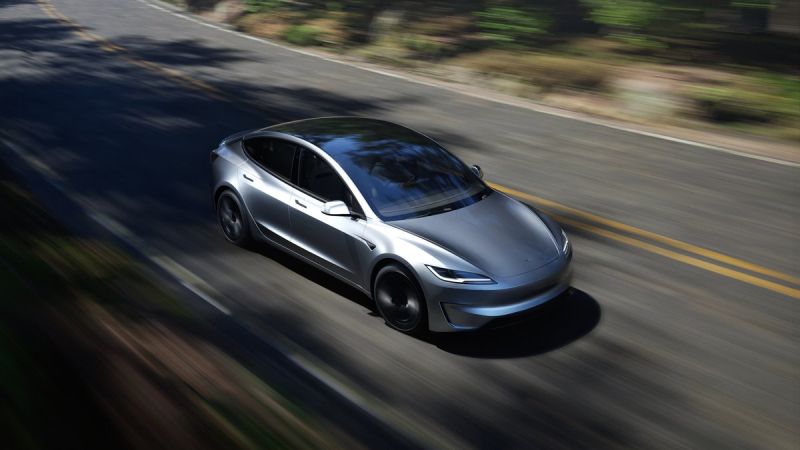




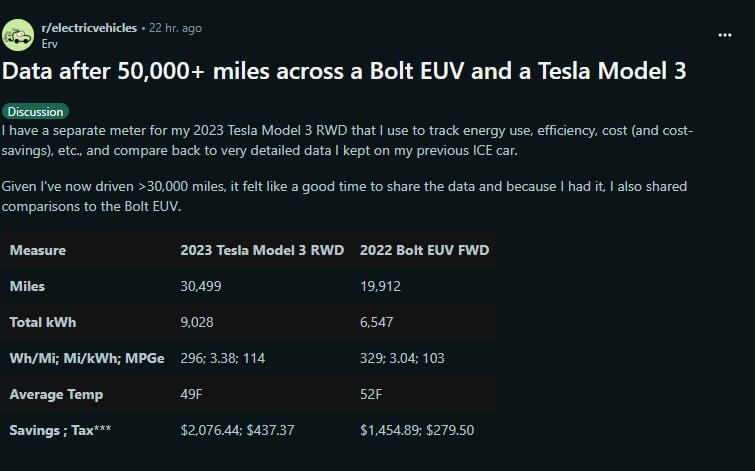



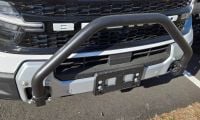

Comments
So In other words, it saved…
Permalink
So In other words, it saved you absolutely money whatsoever to own not only one multiple electric vehicles, which no matter how much you drive them batteries will die the same time anyways... Dope. Good to know what we all know, and gas is more efficient in the right cars
What he's not mentioning is…
Permalink
In reply to So In other words, it saved… by Thad m ncielly (not verified)
What he's not mentioning is the Corolla is 25 years old. Making depreciation non-existent and shouldn't even be part of the equation.
I work as an Automotive…
Permalink
In reply to What he's not mentioning is… by Cody Williams (not verified)
I work as an Automotive Technician and Service Manager for a corporate tire/service chain. I see these cars on a daily basis. The one thing that no one is talking about is the cost of tires. For 1 Tesla tire its between $300 to $500. They have to be runflat, they have no spare. And due to the weight of the car you are lucky to get 15k miles from a set. They are also staggered sizes so they cannot be rotated to prevent premature wear. One customer spends so much money on tires between his 2 model 3s that he is not renewing the lease on the new one he just bought.
Wife owns a Tesla. Wheels…
Permalink
In reply to I work as an Automotive… by James (not verified)
Wife owns a Tesla.
Wheels are are not staggered on any trim level of the Model 3, unless someone installed aftermarket wheels. All the same on all four corners.
True they do not have a spare, but most do not run run-flats as they decrease range.
Tires are expensive and the cars eat them. Absolutely true. I buy fairly premium tires, Pilot Sport All Season 4s for it and they run $386/tire at Discount Tire for a good all season performance tire. That said the Bridgestone Turanza EV All Season is only $296 and still a good tire.
The new 3 performance has…
Permalink
In reply to Wife owns a Tesla. Wheels… by Adam (not verified)
The new 3 performance has staggered wheels.
Right! The new performance…
Permalink
In reply to The new 3 performance has… by Bob (not verified)
Right! The new performance trim does throw a wrench in things with those staggered wheels, good to keep in mind when looking at different trims.
They dont have to be run…
Permalink
In reply to Wife owns a Tesla. Wheels… by Adam (not verified)
They dont have to be run flat tires. Few cars carry spares anymore.
Nice breakdown and thanks…
Permalink
In reply to Wife owns a Tesla. Wheels… by Adam (not verified)
Nice breakdown and thanks for the actual numbers! Yeah, you're spot on about the tire setup on most Model 3s, and good point about run-flats hurting range.
Thanks for clearing that up!…
Permalink
In reply to Wife owns a Tesla. Wheels… by Adam (not verified)
Thanks for clearing that up! It’s helpful to know that Model 3 tires come standard without different sizes on front and rear and that run flats aren’t common. Appreciate your comment!
What Tesla? Our MDX…
Permalink
In reply to I work as an Automotive… by James (not verified)
What Tesla? Our MDX outweighs a model Y by far. GM has sedans that outweigh model 3s.
This comment sounds fake when you not only use the weight propaganda, but then also categorize the entire make into 1 model called "Tesla".
Exactly! Yeah some gas cars…
Permalink
In reply to What Tesla? Our MDX… by Chris Foster (not verified)
Exactly! Yeah some gas cars are definitely heavier than EVs. Really just depends on what you're comparing.
Lower mileage I understand,…
Permalink
In reply to I work as an Automotive… by James (not verified)
Lower mileage I understand, but your rotation comment does not make sense. Maybe for a different Tesla model...
My 2025 Model 3 has 4 identical tires, rotation is the standard process. $30 at Costco.
Tesla's. Tesla has a "wheel and tire plan" for $140/yr which has already replaced a tire due to a screw in the side.
I chose leasing as a way to hedge against depreciation.
I've owned 4 EV over the…
Permalink
In reply to I work as an Automotive… by James (not verified)
I've owned 4 EV over the last 9 years and we have put about 200K total miles on them. Only my current Equinox EV has run flat tires. The three Tesla's did not. And yes the tires wear faster, but I've always got 25K or more from them. That includes taking my Model S to the dragstrip once in a while. Six months ago I had to replace a tire on my Model S due to hitting road debris. Cost was $267 plus tax, so about $300. EV tire cost is more, but not that much more.
Awesome hearing from someone…
Permalink
In reply to I've owned 4 EV over the… by D Pilit (not verified)
Awesome hearing from someone with actual EV experience. Sounds like you've got the tire situation dialed in even with some track fun thrown in.
Only the performance model…
Permalink
In reply to I work as an Automotive… by James (not verified)
Only the performance model has staggered wheels. He's reviewing the long range model with square 18s.
Thanks for the hands on…
Permalink
In reply to Only the performance model… by Bob (not verified)
Thanks for the hands on insight! Yeah, with matching tires rotation's straightforward and that warranty plan looks like good coverage. Leasing to dodge depreciation uncertainty is pretty clever.
Exactly right this was the…
Permalink
In reply to Only the performance model… by Bob (not verified)
Exactly right this was the Long Range model with square 18s. Appreciate that!
Your numbers are off. My…
Permalink
In reply to I work as an Automotive… by James (not verified)
Your numbers are off. My model Y weighs similar if not less than comparable ICE cars.
I'm at 25k miles in my first 2 years of ownership with my original tires and the tire shop says I've got at minimum 2 more years in them and they are in great shape.
For being an "automotive technician" you seem particularly uninformed and/or biased for whatever reason.
For 1 Tesla tire its between…
Permalink
In reply to I work as an Automotive… by James (not verified)
For 1 Tesla tire its between $300 to $500. False - Any correct sized tire that meets weight and speed ratings can be used.
They have to be runflat, they have no spare. False - Unfortunately, many new cars come with no spare.
And due to the weight of the car you are lucky to get 15k miles from a set. False - premature tire wear on Tesla and many EV's is due to instant torque and the urge to use it. I got nearly 50k out of each of my last 2 sets
They are also staggered sizes so they cannot be rotated to prevent premature wear. Mostly False - Performance models are often staggered. The vast majority sold are square.
One customer spends so much money on tires between his 2 model 3s that he is not renewing the lease on the new one he just bought. That's the owners fault. Expensive tires are not required and a heavy foot and instant torque will wear tires out faster.
Really appreciate the…
Permalink
In reply to For 1 Tesla tire its between… by Jason (not verified)
Really appreciate the detailed breakdown. You’re absolutely right, tire wear often comes down to driving style more than anything else.
ALSO, he listed a fuel cost…
Permalink
In reply to For 1 Tesla tire its between… by Jason (not verified)
ALSO, he listed a fuel cost for an electric car, obviously this is zero. Whole article made up off the top of someones head. Lol.
He doesn't own an original…
Permalink
In reply to ALSO, he listed a fuel cost… by Peter (not verified)
He doesn't own an original model that has free supercharging for life. Congratulations on having that!
That’s not entirely true. …
Permalink
In reply to I work as an Automotive… by James (not verified)
That’s not entirely true. My model Y lasted 44k miles on the first set of tires, and they weren’t cashed either, just that winter was around the corner. They chew through tires when people drive like a-holes and have no understanding of the physics involved. If you drive like a sane person, ie rarely touch the brake pedal and rely on the regenerative braking, the tires will last as much or more than a typical car, but drive like a prick and there going to wear out fast. 49k miles on mine and all I’ve done is tires and cabin air filters.
That’s great to hear! sounds…
Permalink
In reply to That’s not entirely true. … by MDC1985 (not verified)
That’s great to hear! sounds like you’ve taken great care of your Model Y, real world ownership like yours helps balance the conversation.
Totally agree! Gentle…
Permalink
In reply to That’s not entirely true. … by MDC1985 (not verified)
Totally agree! Gentle driving and regen braking can go a long way. Your experience really shows what EV ownership can look like when things are dialed in.
Spot on!! No one talks…
Permalink
In reply to I work as an Automotive… by James (not verified)
Spot on!! No one talks about that and you're absolutely correct. The old Toyota is easily cheaper to drive and the Yahoos here haven't a clue. There's no substitute for experience and wisdom and the author deserves credit for calling it like it is.
Really appreciate that thank…
Permalink
In reply to Spot on!! No one talks… by FlyFisher (not verified)
Really appreciate that thank you! Always happy to share the numbers and hear others’ experiences too.
NO Tesla Model 3’s are sold…
Permalink
In reply to I work as an Automotive… by James (not verified)
NO Tesla Model 3’s are sold with runflats. Nor have they EVER. I’m not arguing that the OEM tires with there goofy foam rubber inside for SLIGHTLY less noise aren’t pricey…but $300 each installed is very different then $500 and they are still NOT runflats.
Great point and totally true…
Permalink
In reply to NO Tesla Model 3’s are sold… by Dan (not verified)
Great point and totally true! No run flats on the Model 3, just those acoustic foam tires. They can be pricey but not that pricey.
Tires Tired Tires Unspoken…
Permalink
In reply to I work as an Automotive… by James (not verified)
Tires Tired Tires
Unspoken negative in the EV Industry for the Weight of the vehicle the Tire wears at an alarming rate.
Air pollution due to particles from the tires are extremely Toxic
Pagination